The 10 best amps for blues guitar
Tweed and Blackface Fenders, Brit combos and boutique classics
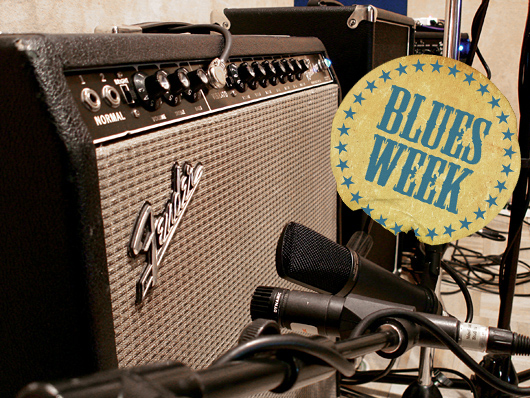
10 best amps for blues
You don’t need an amplifier to be a bluesman. Hell, you don’t even need a guitar. But if your tastes require something with a little more volume and sting than a parlour acoustic or resonator can deliver, whether your weapon of choice is a pawnshop prize, diddley bow or ’62 Stratocaster, you’re gonna need something to plug into.
Thanks to Ask MusicRadar, help is at hand. We asked you to submit your nominations for the best amplifier for blues, and you voted in droves. Some of you kicked and screamed and got up in our faces and said that this was a pointless exercise. Somebody said, “just about any amp will do.” And maybe they have a point.
But if it’s killer blues tone you want, here are 10 amplifiers guaranteed to deliver the goods, as chosen by you, complete with a selection of must-try alternatives from Holy Grail boutique heads to workingman's combos.
First up: Dumble Overdrive Special
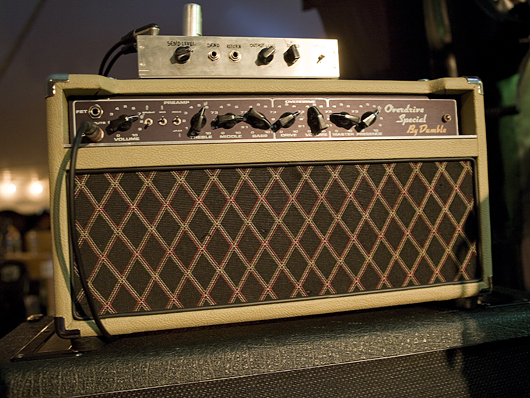
Dumble Overdrive Special
It’s bubble bursting time. You’ll almost certainly never play through a genuine Dumble, let alone own one. With fewer than 300 of Alexander ‘Howard’ Dumble’s amplifiers in existence, all custom-built for A-listers and the extremely well-heeled, the Dumble legend is shrouded in myth and mystery.
Happily, in the YouTube age, it’s not difficult to listen to a Dumble in action or indeed hear from the man himself. There are plenty of pedals and amplifiers out there that claim to get close to that sound, but the Fuchs Overdrive Supreme does a better job of nailing it than anything else we’ve heard. It’s expensive but considerably less so than the $30,000 or more you’d have to drop on the real deal.
Also try:
Two-Rock amps are up there with the best that the boutique amp world has to offer. Reassuringly expensive or just silly money? You decide.
Your votes:
"Dumble!" (Thanks, PostToastee)
"The best blues amp for me would have to be the Dumble ODS or a Two Rock John Mayer, purely for the touch response. Not the dirtiest of amps but blues is about dynamics and feel." (Thanks, chrisn1)
"Blues is all about expression of emotion and amps don't get much more dynamic and emotive than either a Dumble ODS or a Trainwreck Express. A Dumble would get my vote purely on the greater number of records and artists that have used them." (Thanks, guitargeek62)
Next: Fender Champ
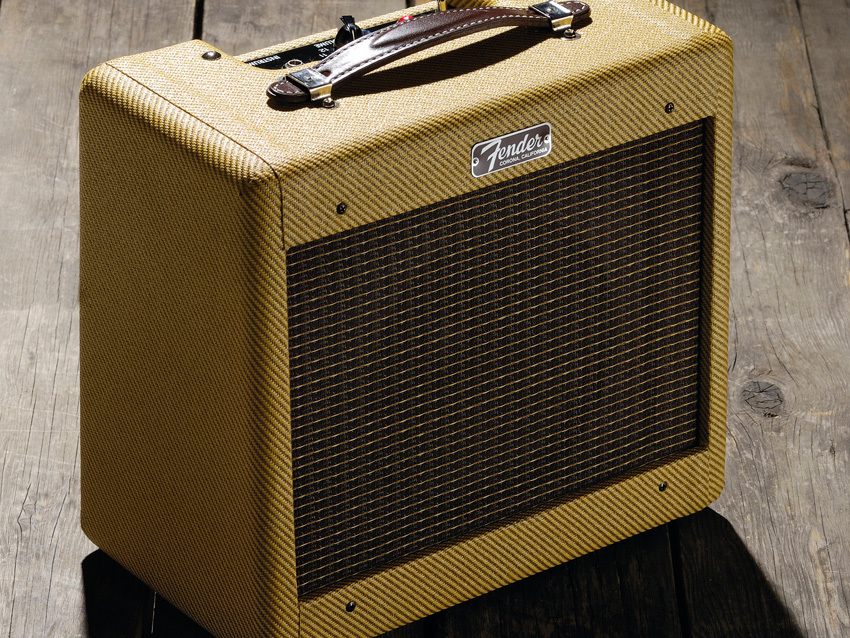
Fender Champ
You know the sound of a 1957 ‘narrow panel’ Tweed Champ better than you realise. All over Rolling Stones and ZZ-Top hits and the main guitar sound in Derek And The Dominos’ classic Layla, this small-but-beautiful amp design is one of the most recorded in the history of rock ‘n’ roll and indeed electric blues.
Fender’s 1957 Tweed Champ reissue isn’t 100-percent vintage accurate but it’s certainly more reliable and safer than the original. Oh, and it’s a little tone monster too.
Also try:
Aside from the numerous clones and homebrew kits that this simple circuit has inspired, Fender’s own Champion 600 is a cheap and popular all-valve option with great sounds for very little money. The Super Champ XD takes ‘60s Blackface cosmetics and adds a library of sounds and digital effects, and is a fantastic compact option for practice and small rehearsals. Finally the Pro Junior is yet another popular Champ-influenced all-valve affair from the Fender catalogue.
Your votes:
“So many fancy boutique amps listed but not one vote for the little Fender Champ? At a local blues festival I watched an artist mic one up on a chair and proceed to blow the audience away. That tiny amp did everything. All from the volume knob. Sometimes less is more.” (Thanks, toyhouse)
“Hmm... Blues Junior is nice, Pro Junior would get a vote if it had reverb. But, at the moment, the humble Super Champ XD gets my vote - from SRV grit to BB King chimey-ness - its all there. And don't give me that ‘oooh, oooh! it's a hybrid!’. It sings like a bird and that's all that matters. Les Paul, Tele and Strat - all sound great.” (Thanks, Chuffola)
“It doesn't get much simpler than a Fender Pro Junior, a Strat and your fingers. Great tone that won't break the bank.” (Thanks, Fretwired)
Buy:
Fender 1957 Tweed Champ currently available from Thomann and Soundslive
Next: Mesa/Boogie Mark Series
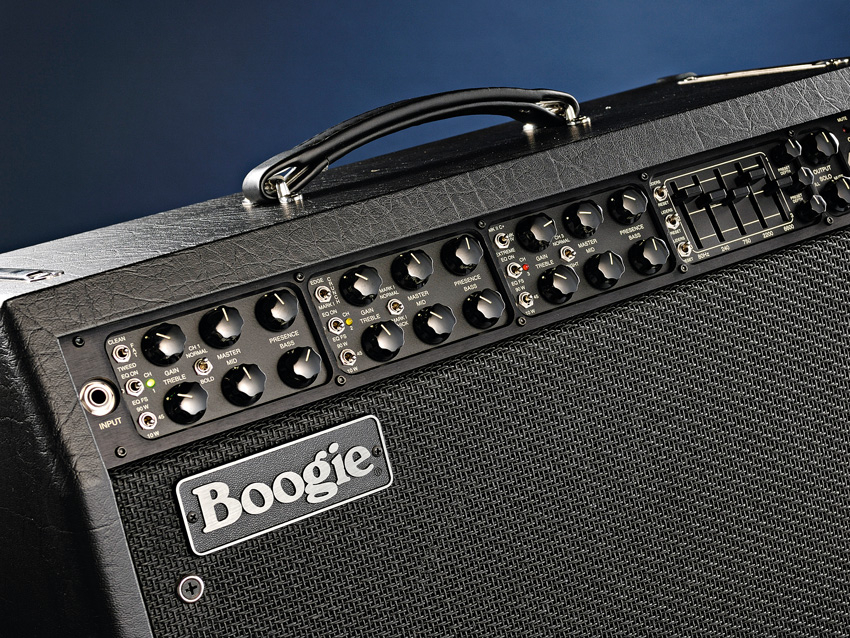
Mesa/Boogie Mark Series
The original boutique amplifier company began with Randall Smith hot-rodding Fender amps in a workshop in San Francisco Bay. "Man, that little thing really boogies!", exclaimed Carlos Santana, and the rest is history.
For all the plethora of Boogie amplifiers these days, it’s the hugely versatile Mark Series that began with the Mark I way back in 1972 that still best epitomises the ‘small amp, high power, huge tone’ philosophy on which the company’s reputation was built.
These days, due to the phenomenal success of the Dual Rectifier, the ill-informed might dismiss Boogies as machines for heavy metal alone. Five minutes with the new Mark Five combo and it’s clear that they couldn’t be more wrong. If you want a compendium of awesome blues, roots and classic and modern rock tones with the power and versatility to handle virtually any gig, the Mark Five is tough to beat. Not just a great blues amplifier, but a killer amp in almost any context.
Also try:
Although the Mark I is currently discontinued, the Electra Dyne and Lone Star models have fewer knobs and more of an old-school vibe than the Mark Five. The Express models are Mesa’s most wallet-friendly combos, and the best starting point for the uninitiated.
Your votes:
“The Mesa/Boogie Lone Star is an awesome blues amp! I got Reeder Mod (#1) done on it which simply opens up the highs on the drive channel. This amp has a level of complexity to it for these types of tones (with my Strat) that I can't get out of another amp (like my Egnater).” (Thanks, gregjones)
“Tricky one this; I've used myriad amps for blues over the years. Currently I'm getting great tones from my Mesa Express 5.25 1 x 12.” (Thanks, andrewg)
Buy:
Mesa/Boogie Mark Five currently available from Andertons Music Co., Thomann and PMT Online
Mesa/Boogie Electra Dyne currently available from Andertons Music Co.and PMT Online
Mesa/Boogie Lonestar Special currently available from Andertons Music Co., Thomann and PMT Online
Mesa/Boogie Express 5:25 Combo currently available from Thomann and PMT Online
Next: Matchless DC-30
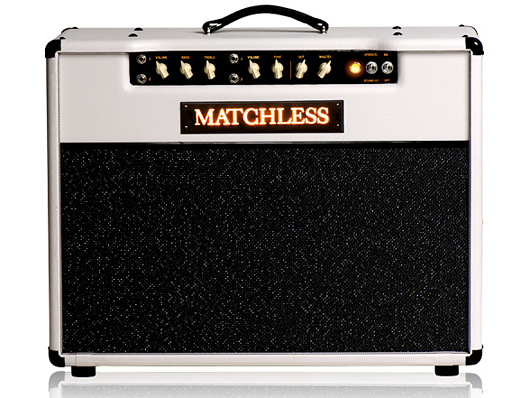
Matchless DC-30
Four EL84 power tubes pushing out 30-watts in a 2 x 12 combo… the concept will be familiar to any Vox fans. But of the hundreds of AC30-inspired boutique circuits, the Matchless DC-30 is the über-sophisticated king.
Famed for its three-dimensional tone, with a price tag that places it out of the reach of most apart from touring professionals and well-heeled amateurs, it’s the perfect amplifier to give voice to those hard time investment portfolio blues. As is customary, Matchless offers various configurations and custom cosmetics.
Also try:
More affordable EL84-powered options with retro blues tone aplenty are available in abundance from Egnater, Orange, Blackstar and Vox amongst others. If money isn’t an issue, check out the EL34-powered Matchless King Cobra. It’s a beautiful-sounding amp with glorious dynamics and a gorgeous onboard tremolo circuit.
Next: Fender Twin
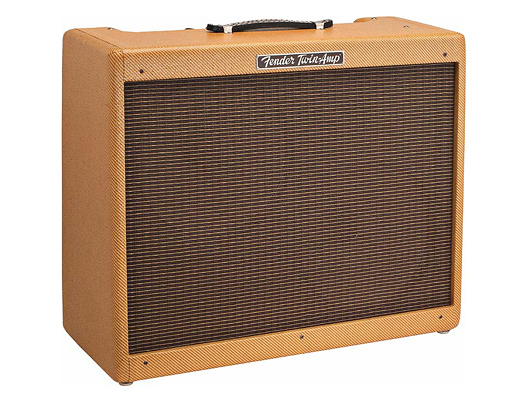
Fender Twin
Beloved of Keith Richards and erm, Steven Seagal amongst many others, Fender’s 1950s Tweed Twins are the connoisseur’s choice: loud, creamy and sophisticated.
For sheer volume and headroom, not to mention reverb, the Blackface ’65 Twin Reverb reissue and more modern Twin-Amp rule, but the lower power of the 40-watt 1955-57 5E8A circuit is our recommendation for the discerning electric bluesman.
Also try:
Victoria makes some of the finest boutique interpretations of Tweed-era Fender amps on the planet. UK-based Lazy J amps are also well worth checking out for ‘50s Fender flavours with interesting twists.
Your votes:
"Fender Twin is a pretty standard choice, just add Lucille and you get the picture." (Thanks, AlexHunter)
Buy:
Fender Blackface ’65 Twin Reverb currently available from Andertons Music Co., Thomann and PMT Online
Fender Twin-Amp currently available from Andertons Music Co., Thomann and PMT Online
Next: Vox AC30
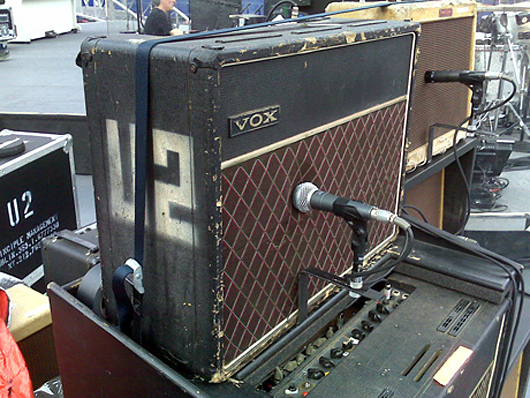
Vox AC30
Although Vox typically conjures up images of ‘60s pop and retro jangle, plenty of raunchy blues tones on Brian Jones-era Rolling Stones records came courtesy of an AC15, while an AC30 in combination with a Dallas Rangemaster treble booster was the mainstay of Rory Gallagher’s fiery signature sound.
If you are looking for a white knuckle EL84 blues tone with real attitude that you can tame when required with the guitar’s volume control, a cranked AC30 Top Boost is the (very loud) answer. The latest, master volume-equipped production model is the AC30C2 2 x 12 combo, but there are more old-school configurations available too courtesy of the Heritage Collection.
Also try:
If you are on a budget, or if an AC30 is just too damn loud, check out the Valvetronix series for a host of modelled sounds including decent AC30 and AC15 impressions. If you want to get that cranked Vox rasp without making your ears bleed, check out the seriously cute AC4TV combo.
Your votes:
"Vox AC30 with top boost and Alnico Blues (and yes that includes the new Chinese models). It's warm, jangly cleans, very touch responsive - wind-up the volume and stick a treble boost in front of it and it's incredibly versatile." (Thanks, AlexHunter)
"Small amps sound the best to me - got two AC15s and that’s my blues tone right there." (Thanks, chrisn1)
Buy:
Vox AC30C2 currently available from Andertons Music Co., Thomann, Soundslive and PMT Online
Vox VT30 currently available from Andertons Music Co., Thomann, Soundslive and PMT Online
Vox AC4TV currently available from Andertons Music Co., Thomann, Soundslive and PMT Online
Next: Fender Bassman
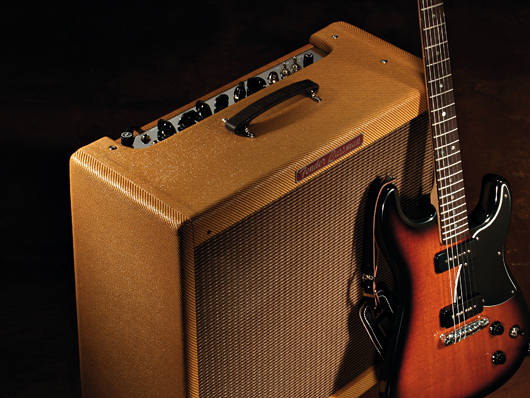
Fender Bassman
It’s no secret that one of the greatest and most influential electric guitar amplifier designs in history began life intended as a companion to Fender’s Precision Bass. But it didn’t take long for guitar players to get wise to the fact that the 4 x 10 Tweed Bassman combo of the late 1950s sounded truly glorious in combination with their six-string electric of choice.
Indeed, the Bassman’s place in the history of rock ‘n’ roll was further cemented when Jim Marshall cloned the 5F6A circuit with British components and created the JTM45, which, with a few tweaks, would provide Eric Clapton with the firepower to define the sound of British electric blues in 1966.
If Fender’s original is your poison and a vintage example is out of reach, the current ’59 Bassman reissue is your best bet. That said, don’t overlook the mid-1960s Blackface-era heads that you can pick up for reasonable money. The tonality is different, but still great for blues and rootsy rock styles.
Also try:
Fender’s Blues DeVille 410 isn’t the purist’s choice but it kicks out a hell of a lot of volume, and along with the Hot Rod DeVille, you’ll find it in action on stages every night of the week. Meanwhile, the Super-Sonic is voiced to emulate a ’59 Bassman on its Vintage channel. For those better endowed in the wallet department, Victoria’s 45410 is one of the best boutique recreations we’ve heard.
Your votes:
"The larger amps, Hendrix 100W Marshall, Soldano 100s, Dual Showman, Twin Reverb, Super Reverb (a big US favourite) are a blast - if you're playing to large audiences. But even in the States where I'm offered a good choice of amps I always come back to the Fender Bassman - which when cranked is pretty much my reference tone." (Thanks, stringkiller)
"I now use a Fender Super-Sonic which give tones in the Bassman and Vibrolux ballparks as well as great overdrive channel which covers a lot of bases. Tones across a range of players from Robert Cray, SRV, Hendrix, Clapton and Gary Moore – it’s a very versatile amp but weighs a ton. The thing that attracted me to it was the vintage channel - it only has three controls. Volume, bass and treble. Dead simple just like my old Champ 12 (which was another great little amp). Crank the volume and tweak the Q for the best blues and rock tones. Only one input too. You can stick anything in the front end and it sounds great." (Thanks, bbcoz)
"Fender - Deluxe Rev, Super Rev, Bassman 4 x 10. Marshall - Bluesbreaker, 2041 18-Watt combo."(Thanks, basspete)
"Blues DeVille, cracking amp." (Thanks, RTBH)
Buy:
Fender '59 Bassman currently available from Thomann and PMT Online
Next: Marshall 1962 'Bluesbreaker'
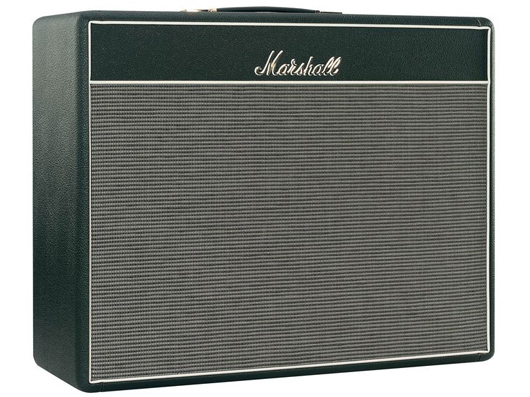
Marshall 1962 'Bluesbreaker'
Confusingly, 1962 is the model number, rather than the year that this amplifier was born. That was in 1965, when a young Eric Patrick Clapton requested that Jim Marshall make him a combo amplifier with tremolo that would fit in the boot of his car for use with John Mayall’s Bluesbreakers.
Based on a JTM45, unlike later Marshalls, Clapton’s amp was powered by KT66 valves. In combination with a Les Paul, it sounded outrageous. For some, Clapton’s work on The Bluesbreakers’ ‘Beano’ album in 1966 is still the high watermark for electric blues. Find out how to get some of Clapton’s classic Gibson/Marshall tones in our video lesson which features a modern Bluesbreaker reissue.
Also try:
Marshall’s Class 5 combo is one of the best solutions out there when it comes to Bluesbreaker-style tone in a smaller, low-powered package. If KT66 valves are key then the Vintage Modern 2266C combo has plenty of ‘60s Marshall flavour. As you might expect, an amplifier as iconic as the Bluesbreaker has its fair share of boutique clones. One of our favourites is the Route 66 from Dr Z Amplification, and here’s another killer KT66 combo from Divided By 13.
Your votes:
"While it might not be the most accurate reissue, the Marshall 1962 (the Bluesbreaker) can deliver deafness and defness in equal measure with the channels jumpered and the volume cranked. The only potential problem is that it looks so smile-inducingly good, it could play havoc with your downtrodden, bluesman image." (Thanks, Clecko)
"Can't go wrong with a Fender Blues Junior or a Marshall Bluesbreaker." (From Connor via Facebook, thanks)
“Marshall Bluesbreaker re-issue. Weighs a ton, but this is the Voice of God. Everyone should experience it at least once...” (Thanks, BlindLemonAde)
“Marshall Bluesbreaker - sounds of The Beano Album, not a saturated mushy overdrive but valves and speakers being driven hard.” (Thanks, AlexHunter)
"If you must settle on an amp, it depends on the guitar really. Maybe a Fender Super Reverb for singlecoils, and a Marshall Bluesbreaker or Silver Jubilee for humbuckers." (Thanks, guitarsimon)
"Fender - Deluxe Rev, Super Rev, Bassman 4 x 10. Marshall - Bluesbreaker, 2041 18-Watt combo."(Thanks, basspete)
Buy:
Marshall 1962 Bluesbreaker currently available from Andertons Music Co., Soundslive and PMT Online
Next: Fender Super Reverb
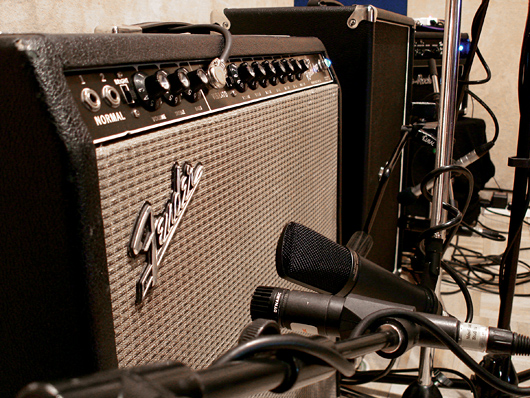
Fender Super Reverb
Over the years, Fender’s glorious Blackface 4 x 10, twin 6L6-powered Super Reverb has graced stages with giants of electric blues from Stevie Ray Vaughan to all three Kings and fusion legend Robben Ford.
Just add a Stratocaster and a Tube Screamer and a Blackface Super is an awesome Texas blues machine. A good mid-1960s example is many a blues player’s holy grail, but they can be inconsistent and unreliable without expert attention, so it’s unsurprising that Fender’s current ’65 Super Reverb reissue is a safer option.
Also try:
You don’t necessarily need a Super to nail the SRV tone. Check out our video lesson featuring a Blues Deluxe for proof. However, if you do want one and can’t afford an original, you might consider picking up a secondhand early-1970s Silverface model and having it modded to Blackface specs.
Your votes:
"If you must settle on an amp, it depends on the guitar really. Maybe a Fender Super Reverb for single coils, and a Marshall Bluesbreaker or Silver Jubilee for humbuckers." (Thanks, guitarsimon)
"Fender - Deluxe Rev, Super Rev, Bassman 4 x 10. Marshall - Bluesbreaker, 2041 18-Watt combo." (Thanks, basspete)
Buy:
Fender '65 Super Reverb currently available from Thomann and PMT Online
Next: Fender Deluxe Reverb
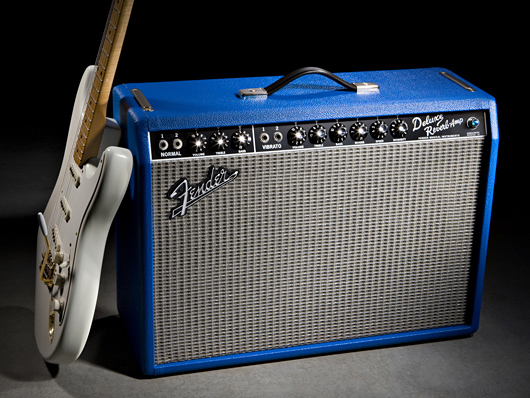
Fender Deluxe Reverb
Ladies and gentlemen of the blues, we have a winner. Storming to the top of our chart thanks to your votes is Fender’s 6V6-loaded, 22-watt tonal giant.
Amongst the most-recorded studio amps in history, the Deluxe Reverb’s modest power stage is perfect for driving hard on club stages, but deceptively loud nonetheless. Guaranteed to win a MusicRadar office straw poll regarding amps most likely to induce misty-eyed GAS symptoms, Deluxes are just plain desirable. And with street prices for the reissue under £900 at the time of writing, the great news is that it’s one of the most affordable amps in this rundown.
We should probably just let the Deluxe do the talking, but suffice to say, your nomination for the best guitar amplifier for blues is also a killer amp for rock ‘n’ roll, pop, indie, rockabilly… you name it. Sumptuous jangling cleans, raucous raw tube saturation, haunting reverb and that hypnotic tremolo circuit = difficult not to love.
Also try:
Fender’s ’65 Princeton Reverb reissue has a similar Blackface tonality but is even easier to drive thanks to its lower power rating and smaller speaker. More recent Deluxes from Fender include the Deluxe VM and Blues Deluxe combos, while the Blues Junior is another popular choice. Fans of the earlier Tweed Deluxe should check out Lazy J's awesome Model 20.
Your votes:
"Without a doubt the Fender '65 Deluxe Reverb Reissue. Crank it up and hear it sing, put a Tube Screamer in front and hear it wail." (Thanks, snailspace7)
"Fender Deluxe Reverb gets my vote, even ahead of my CeriaTone OTS." (Thanks, ZenOvertone)
"Fender - Deluxe Rev, Super Rev, Bassman 4 x 10. Marshall - Bluesbreaker, 2041 18-Watt combo." (Thanks, basspete)
"Fender Deluxe Reverb." (Thanks, SurfGreen)
"Fender Deluxe Reverb." (Thanks, thomasw88)
"Fender Deluxe Reverb. End of discussion." (thanks, rabbitrabbit)
Buy:
Fender '65 Deluxe Reverb currently available from Andertons Music Co., Thomann, Soundslive and PMT Online
Liked this? Now read: 12 best amps for heavy metal
Connect with MusicRadar: via Twitter, Facebook and YouTube
Get MusicRadar straight to your inbox: Sign up for the free weekly newsletter
Chris Vinnicombe worked with us here on the MusicRadar team from the site's initial launch way back in 2007, and also contributed to Guitarist magazine as Features Editor until 2014, as well as Total Guitar magazine, amongst others. These days he can be found at Gibson Guitars, where he is editor-in-chief.